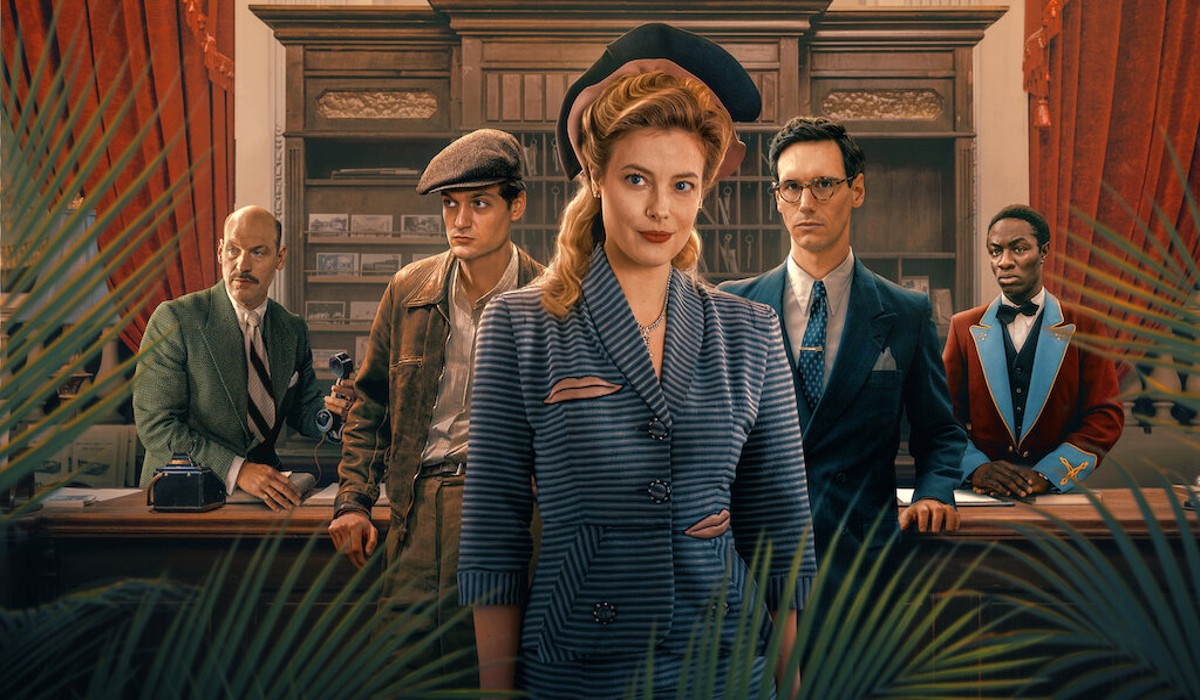 Photo: Netflix
Photo: Netflix
A Netflix series about artists and intellectuals fleeing Nazi occupied Europe has a lot to recommend it says Tom Griffiths
With its stylish Jean Cocteau inspired montages, vibrating Provencal blues and sun-drenched locations so vivid you can smell the thyme in your living room, Transatlantic is a luscious, entertaining historical drama that offers a playful but surprisingly fresh take on the plight of refugees in 1940s occupied France.
Loosely based on the adventures of real-life American Journalist Varian Fry, played by Cory Michael Smith, who ran a rescue network that helped 2,000 to 4,000 anti-Nazi and Jewish refugees to escape Vichy France, the story includes appearances from a range of revolutionary figures from the world of politics and the arts.
Frankfurt School philosopher Walter Benjamin (Moritz Bleibtreu), French surrealist writer André Breton (Louis-Do de Lencquesaing), Dada painter Max Ernst (Alexander Fehling), art collector Peggy Guggenheim (Jodhi May), German satirist Walter Mehring (Jonas Nay), historian and philosopher Hannah Arendt (Alexa Karolinski), and Russian revolutionary Victor Serge (Emmanuel Salinger), all pass through, pausing to party in a dilapidated and bohemian chateaux, where Fry and his associates are hiding refugees while they fight to gain safe passage out of Europe.
Some of these characters fly through too quickly, and it would have been great to have had more of Victor Serge. Serge was a member of the Russian Communist party and only narrowly escaped Stalin’s show trials before his exile abroad.
What is shown, however, is that, because of his uncompromising politics, he proved to be one of the most difficult of refugees to find a country willing to take him. Although all too briefly on screen, it’s great to see him with raised fist in the office of the Mexican consulate shouting ‘viva la revolucion’!
The show often takes a light-hearted approach and there are plenty of moments played for laughs with, for example, eccentric avant-garde artists loudly reciting poetry and wearing outlandish costumes, while our exasperated heroes try and keep them hidden.
There is also lots of action as intellectuals are smuggled out of the eponymous Transatlantic hotel and RAF airmen are broken out of Vichy prison camps.
Several of the ‘bad guys’, such as the local chief of the Sûreté, played by Grégory Montel, are decidedly arch, with the actors given licence to have lots of campy fun. Transatlantic doesn’t hold back from enjoying itself either; it’s clearly meant to be relished, and for the most part, it is delightful escapism.
While this remains true, the show also manages to deliver a positive and often progressive portrayal of a deeply horrific, dangerous, and, of course, political moment in time. While this sometimes causes some dissonant tonal clashes, the show can be forgiven for embracing the contradictory experiences of life for many of these people.
Transatlantic also foregrounds lots of less well-known and incredibly courageous women and black characters. Lisa Fittko (Deleila Piasko), was a real-life Hungarian and later respected memoirist, who helped many to escape from the Nazis and helped Walter Benjamin get across the border into Spain.
Mary Jayne Gold, played well by Gillian Jacobs, was a Chicago-born heiress, who used her family wealth, belying all expectation, to aid several Jews and intellectuals to find freedom, often at risk of her own life.
Black characters Paul and Jacques Kandjo, played by Ralph Amoussou and Birane Ba respectively, who work in the hotel, are both excellent and give audiences a vital reminder of the key role played by black men and women in the French resistance, a role overlooked in the vast majority of fictional portrayals.
What’s also refreshing is the varied roles played by the other American characters. Corey Stoll for instance, whose manipulated and damaged politician in ‘House of Cards’ was a standout performance, here plays a broader but no less significant part, as the American diplomat out for himself, sympathetic to business opportunities with the Nazi regime and with a decidedly unsympathetic attitude to socialists, artists, and Jews.
Not everyone gets out alive, of course, and there are some real examples of poignant tragedy. When all is said and done however, the story never lingers too long on these painful moments and sets out to do what it clearly wanted; to create an accessible and enjoyable wartime romp with a host of characters all too rarely seen on mainstream television. For that it is to be lauded and enjoyed.
Before you go
Counterfire is growing faster than ever before
We need to raise £20,000 as we are having to expand operations. We are moving to a bigger, better central office, upping our print run and distribution, buying a new printer, new computers and employing more staff.

